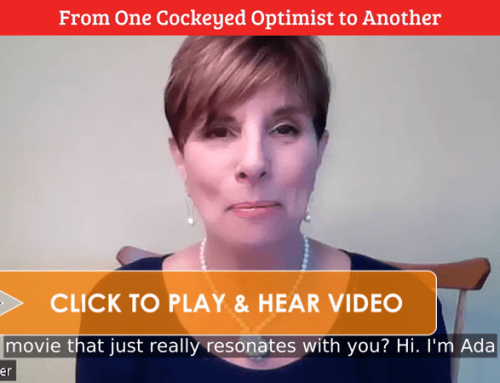 I’m not sure when the word compromise became a dirty work and thus went out of favor. In our current politically correctworld, it seems that we all want to be assured that everyone will get everything they want, when they want it, and in the way they want it. Nice thought. But if life has taught us anything, it is that this is truly a false notion and when you really stop and think about it, a little ridiculous.
I’m not sure when the word compromise became a dirty work and thus went out of favor. In our current politically correctworld, it seems that we all want to be assured that everyone will get everything they want, when they want it, and in the way they want it. Nice thought. But if life has taught us anything, it is that this is truly a false notion and when you really stop and think about it, a little ridiculous.
We only have to look at what’s happening in Washington to see how the lack of willingness to compromise has brought us to our knees. The crippling deadlock has a stranglehold on our society and no matter where you are on the political spectrum; most national polls suggest that a significant majority of Americans are sick of it. They want their representatives to get off the dime and work together to solve the serious problems we face as a nation. They want compromise!It may be a good idea to start with the dictionary definitions so we’re all on the same page as we explore this concept. If we go to Webster’s, it states:
1. Compromise: A settlement in which each side gives up some demands or makes concessions
2. Concession: An act of conceding, granting, yielding
3. Concede: To admit as true or valid; acknowledge
4. Negotiate: To confer, bargain or discuss with a view to reaching agreement.
5. Confer: To give, grant, bestow
6. Mediate: Bring about by conciliation
7. Conciliate: To bring together, win over; to gain (regard, good will, etc.) by friendly acts.
As you dig down into each definition, another word arises that brings clarity and distinction to the original word. When we include all the definitions in light of mediation, they illuminate one basic concept – the idea of give and take, zig and zag, back and forth until a mutually agreeable settlement is reached.
Even if we remove the word “compromise” from the lexicon and insert “negotiation” – we’re still pretty much talking about the same thing: giving up something in order to get something else. Dr. Phil says that life is a negotiation. And although my friend Aebra says I lose my street “cred” when I quote him, the truth is he’s absolutely right.
During a mediation when my clients seem to be digging their heels in on their fixed positions, I will sometimes offer a gentle reminder that we are all adults in the room and nobody really gets everything they want. Only children can have that sort of magical thinking. But, we want to use that strong desire as an opportunity to explore that position, acknowledge the need or the fear that has them holding tight to it and see if there is a way to compromise.
Compromise – there’s that word again! But it doesn’t necessarily mean giving up something that is truly important. If in the course of a meaningful dialogue (and mediation is the perfect forum for meaningful dialogue), the parties are able to concede the other side’s point of view, (remember the definition of concede: “to admit as true or valid, acknowledge”), then a completely different sort of communication, a new “listening” if you will, can begin. This in turn, can lead to a whole host of positive possibilities. When something is really that important to one party and the other person, as a result of this new listening, is able to truly see it, then a compromise can be crafted where something else, perhaps less vital to the first party, can be put on the table in exchange. This is called negotiation and compromises are part of the package. Not so bad!
Nothing in life is black and white and it can take a little doing to ultimately come to these mutually agreeable resolutions, but it doesn’t matter what you call the means to get there – compromise, negotiation, concession, etc. In the end what matters is that each person in the mediation walks away with agreements that make sense to them and that they feel they can live with.
- Does Child Support Have to be Paid? - April 17, 2024
- Is the Child Support Statute in New York State Still Relevant Today? (video) - April 2, 2024
- Managing Expectations Post-Separation or Divorce (video) - March 6, 2024






Leave A Comment